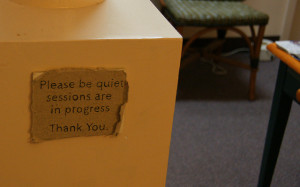To love yourself is not just a self-esteem boosting piece of advice. It is the prerequisite to truly loving others as well. Continue reading for further information on developing self-compassion.
Self-Love
Self-love is not just about feeling good or taking time for yourself. It’s a state of appreciation for oneself that grows from actions that support your physical, psychological, and spiritual growth. Self-love allows you to accept your weaknesses along with your strengths, and to have compassion for yourself as you strive to find personal meaning and fulfillment.
You might think of your thoughts as reflections of the outside world; you’re actually creating your life with your thoughts. It can be challenging to shift from self-judgment and negativity to compassion and positivity. Fortunately, you can change your body and brain with the thoughts you think, and the words you speak.
Self-love builds out of the thoughts and actions that you choose. This, in turn, will support you emotionally, psychologically, physically, and spiritually. Self-love is a dynamic experience that expands and moves with you as you change, experience life, and grow. Source: Chopra
Offering Kindness to Yourself
Begin by offering loving-kindness to yourself in your ordinary form. This is the “you” that you see in the mirror. Imagine yourself as a beloved. See yourself through the eyes of love and offer loving-kindness to this version of yourself. No matter how puny you may feel right now, there are still parts of you that you simply love. See this.
Move on to the view of yourself as a stranger. There are parts of you that you just can’t see, parts that are shrouded and mysterious. Offer loving-kindness to this stranger that is you.
After this, bring to mind yourself as an “enemy.” This does not mean what you dislike about yourself. It refers to the part of you that is most fragile and wounded, and therefore acts in ways that create chaos for you and those in your life. See yourself as this person who is laboring under great confusion. Offer loving-kindness to this version of yourself.
Finally, bring all of these fascinating, beautiful, difficult pieces together and offer loving-kindness to all of you. Source: LionsRoar
Self-Acceptance Practice
In our media oriented culture, it’s easy to get hypercritical about body image. However, if you can accept yourself—even those faulty parts, the not so perfect parts—then you can nurture contentment, calm, and confidence within. Self-acceptance can quiet those self-critical voices inside your head.
My advice is to start the day with a soothing self-hug of self-acceptance. This is an ideal practice for starting or ending your day. A self-hug act as an affirmation and antidote for those times you feel lonely and want to feel safe and cared for… without resorting to unhealthy or emotional eating.
Begin by cupping both your hands gently over your heart. Let your hands be soft and warm as you imagine breathing into the heart center. Now, say the following affirming words: I am loved and I value myself, Because I value myself, I promise to take care of myself, I am strong and resilient, and there are others who care about me and love me, I am thankful for what is in my life and will find resources to help me find someone equally loving and caring to share my life with.
Holding onto this affirmation, raise your hands high above your head. Then slowly lower your hands in a downward sweeping motion that brings your palms past the front of your face, torso, legs, and finally down to the feet. As the hands move over the body, picture your affirmation being absorbed into your whole being. Lastly, cross your arms in front of the chest and put each palm on the opposite shoulder to invite inner hospitality with a self-hug. Hold this hug until you feel soothed, calm, and cared for. Source: TCME
It’s time to treat yourself with the kind of tenderness and understanding that you show others. We hope that this post helped you to learn more about the importance of self-compassion. Please contact us here if you would like more information.
Contact:
Gina Vanderham Psychotherapy Practice
470 Granville St #830, Vancouver, BC V6C 1V4
Voicemail: (604) 733-7428 | Email: [email protected]










